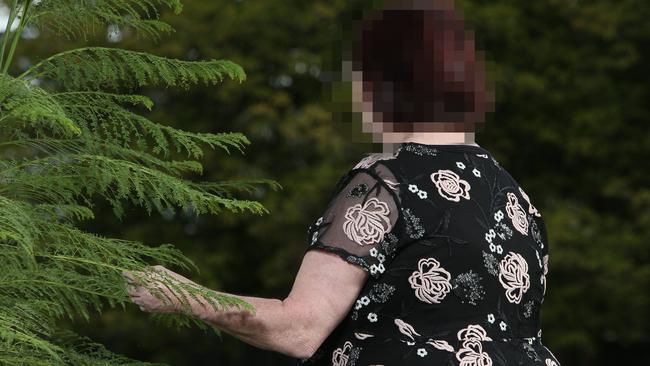Robyn fled her home to escape domestic violence – and became one of many homeless women in her 50s
After 37 years of abuse, this woman escaped, leaving behind everything – even her children. She’s just one victim of an “invisible” epidemic.
SA News
Don't miss out on the headlines from SA News. Followed categories will be added to My News.
Robyn Devi was just 16 when, at a suburban cricket match, she met the man she would marry.
She returned with her overseas-born husband to his birth country before settling back in Australia – initially Sydney and later the Riverland – the next year, aged 18.
For the next four decades she would endure shocking physical and emotional abuse until “things got so bad” she tried to take her own life, aged 54.
It is women such as Robyn whom Uniting SA chief executive Jen Hall is desperate to help, lobbying ahead of the federal election for a national housing strategy.
Robyn survived and as part of her recovery was connected, for the first time, with counsellors.
The mother and grandmother decided to flee her regional home, leaving her husband and the family business almost empty-handed – making the heartbreaking decision to also disappear from the lives of her adult children and grandchildren, for fear he’d be able to find her through them.
“I left basically with what you would take on trip overseas – a suitcase and a carry-on bag … it was terrifying,” she said.
“All of a sudden, at 54, I had no money, no car, no home, no family – all of the things you take for granted.

“I didn’t know where I would go, I didn’t know what I was going to be able to do job-wise as I had no recognised skills.”
Robyn was initially taken by police to a shelter in Berri but was worried her husband would track her down, so she travelled to Adelaide where she was supported by charities such as Catherine House and Uniting SA.
“I shudder to think what I would have done without that support,” the now 59-year-old said.
“I think I would have ended up having to go back … I still live in fear of him finding me but my life is looking good.
“I was supported into training – certificate III and IV in community services – and am working 40 to 50 hours a week in disability care.”
Ms Hall said Uniting SA needed dedicated funds for social and affordable housing for women over 50.
“Women aged over 55 are the fastest-growing homelessness population in Australia … it really is quite alarming,” she said.
“Yet this group, despite having spent their lives contributing and caring for others, is largely invisible.”
Uniting SA in partnership with the SA Housing Authority (SAHA), which provided a $1m grant, has opened a community housing project to support older women in need, assisted by members of the former local Gospel Mission, who donated the land.
“We have done it, so there is a template out there,” Ms Hall said.
A Labor spokesman pointed to the party’s Housing Future Fund policy, which is a $10bn “off-budget” resource to build social and affordable housing, including a $1.7bn investment in housing for women.
A federal government spokesman said there was already a national housing strategy around homelessness – the National Housing and Homelessness Agreement, which is in place between the government and all the state and territories.
■ The Advertiser has chosen not to use Robyn’s real name to protect her identity.



